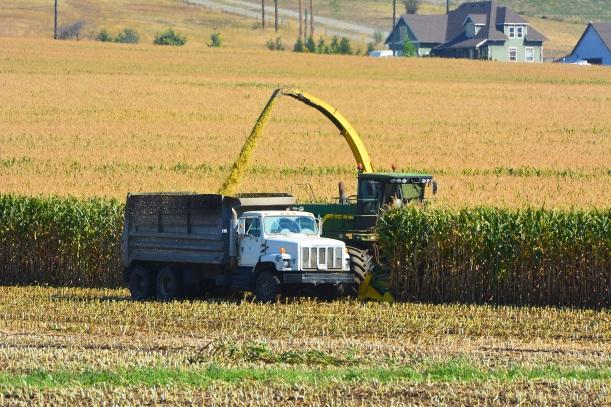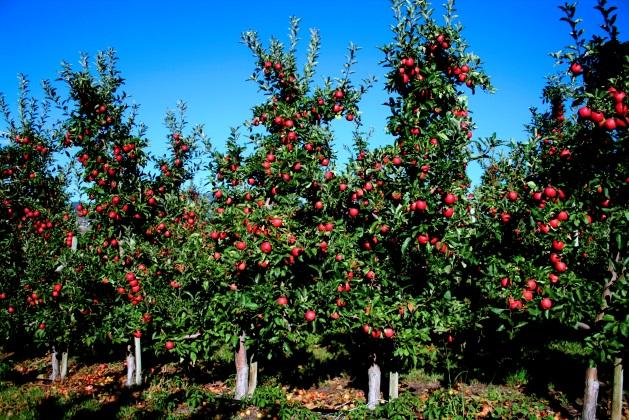
The District of Coldstream is a diverse mix of urban and rural areas. Farming activities comprise a large portion of land use in the community with over 65% of the land base contained within the Agricultural Land Reserve (ALR). Living in the country is an enticing factor for people looking to enjoy the peace and quiet that comes with rural life. However, new rural residents might not understand what farming activities can occur in an agricultural community, and farmers might not understand how these new residents perceive the rural lifestyle.
The Agricultural Land Reserve (ALR) is a provincial zone in which agriculture is recognized as the priority use. Farming is encouraged and non-agriculture uses are controlled.
Provincially the ALR covers approximately 4.7 million hectares. It includes private and public lands that may be farmed, forested or vacant land. Some ALR blocks cover thousands of hectares while others are small pockets of only a few hectares. In total, the ALR comprises those lands within BC that have the potential for agricultural production.
The Agricultural Land Reserve takes precedence over, but does not replace other legislation and bylaws that may apply to the land. Local and regional governments, as well as other provincial agencies, are expected to plan in accordance with the provincial policy of preserving agricultural land.
The Agricultural Land Commission Act sets the legislative framework for the establishment and administration of the agricultural land preservation program.
The provincial Agricultural Land Commission (ALC) is an independent administrative tribunal dedicated to preserving agricultural land and encouraging farming in British Columbia. The purpose of the ALC is to:
- Preserve agricultural land;
- Encourage farming in collaboration with other communities of interest; and
- Encourage local governments, First Nations, the government and its agents to enable and accommodate farm use of agricultural land.
So what does this all mean? It is important to have an understanding of farming activities and what residents can expect at different times. For example:
- Farming requires long hours. The typical work day starts early and ends late.
- Most farming is done with large machinery. Sometimes peace and quiet can be disturbed, especially during planting and harvest time. Machines can run late into the night and start up early in the morning.
- Many crops rely on fertilization, and often farmers use the “end” product of their livestock. The farmer is recycling and using an environmentally friendly alternative to chemical fertilizers.
- In BC, farmers are protected under the Right to Farm Act and are permitted to clear large tracts of land for crops or grazing.
An important factor to healthy rural living is communication. Meet your neighbors, get to know them and learn about their lifestyle. Remember, rural living is not “wilderness living”. The world has become busier everywhere, and country life is no exception. Educating yourself on pertinent information – such as zoning, where the ALR boundaries are and the different types of activities that are permissible – can help mitigate future problems. It is important to remember that the ALR was established to provide a home for farming and to provide food security for the future.
The fundamental policy in the provincial government’s Farm Practices Protection (Right to Farm) Act is that farmers have a right to farm in BC’s important farming areas, particularly the ALR, provided they use normal farm practices and follow other legislation listed in the Act. The Right to Farm Reference Guide lists and describes many of British Columbia’s diverse farm practices in general terms. The guide is intended to be used by people seeking information related to issues and concerns raised about farm practices. The guide may also be used by the Farm Industry Review Board (the statutory body established under the Farm Practices Protection (Right to Farm) Act) to hear formal complaints about farm practices.
The Farm Practices (Right to Farm) Act was adopted in BC to ensure that farmers would be able to farm their property without worrying about nuisance claims being made because of dust, odours or noise coming from the farm operation. The legislation states that farmers cannot be held liable for a private claim of nuisance if they are farming their property using normal farm practices. This same protection applies to municipal nuisance bylaws. The important part of the legislation is that the farmers must be using normal farm practices. More information on Normal Farm Practices can be found on the Ministry of Agriculture website.

